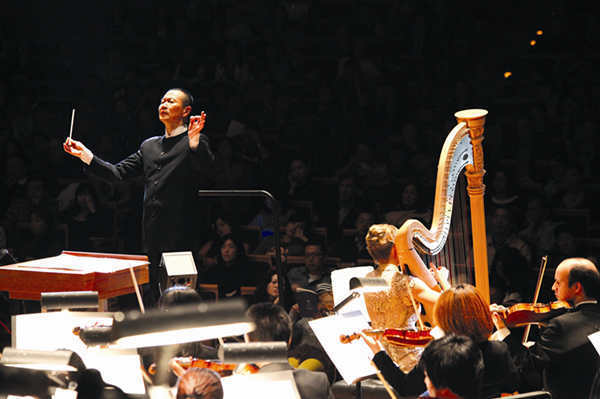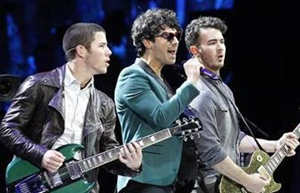Composer pays tribute to women
By Zhang Kun in Shanghai ( China Daily ) Updated: 2013-10-31 15:14:28
 |
|
Tan Dun's new symphony and micro-film production premiered in Shanghai on Oct 20. Provided to China Daily |
As a man and father of two boys, composer Tan Dun says he owes so much to a woman whom he can never repay in his lifetime.
But he is surely working hard on that as an artist. His new creation, Nu Shu: the Secret Songs of Women, had its Chinese premiere on Oct 20, as a commissioned project of the Shanghai International Arts Festival, and presented by Shanghai Symphony Orchestra.
The symphony and micro-film production "is an ode for women", says the 56-year-old composer, best known for his Oscar-winning creation of music for the movie Crouching Tiger, Hidden Dragon.
He Jinghua, 79, is one of the oldest inheritors of Nu Shu, a unique script used only among women in Jiangyong county of Hunan province.
He sang a short ballad of Nu Shu with her female friends, who came from Hunan to Shanghai, at the concert's conclusion at the Shanghai Oriental Art Center. Nu Shu is recognized by UNESCO as the world's only script exclusively for women, and it's one of the earliest traces of feminism in China and almost extinct, Tan says. Only a few women can read Nu Shu now, and they are all elderly.
A native of Hunan province, Tan was greatly stricken when he read about Nu Shu a few years ago.
"It's a beautiful language, written in curving strokes and sung in the local melodic pattern," he explained to the media before the premiere. Women in the particular region of Jiangyong used to compose poems and lyrics of Nu Shu in secret diaries and on fans, embroidering the characters on their handkerchiefs and belts, and singing songs.
These booklets contain emotional expressions, wisdom for motherhood and being a woman. They were passed between girlfriends and sisters, mothers to daughters.
"The presentation of Nu Shu is so visual that I decided to make video recordings as I documented the music patterns," Tan says. The traditional lifestyle and landscape is gradually giving way to modernization and he believes it's important to capture them in micro-films. Thus what he first conceived as a musical work evolved into a project that incorporated micro-films and symphony.
An admirer of Hungarian musician Bela Bartok (1881-1945), Tan wants to collect and make analytic studies of folk music, following the footsteps of his role model.
"By bringing back to life the culture of the past, we may find the direction to the future of our culture," he says.
Nu Shu is his second project in this attempt. In 2001, he composed The Map: Concerto for Cello, Video and Orchestra, based on the melody, rhythm and visual materials he collected in Hunan's minority ethnic communities.
|
|
|
|
|
|
|
|























 Raymond Zhou:
Raymond Zhou: Pauline D Loh:
Pauline D Loh: Hot Pot
Hot Pot Eco China
Eco China China Dream
China Dream China Face
China Face





